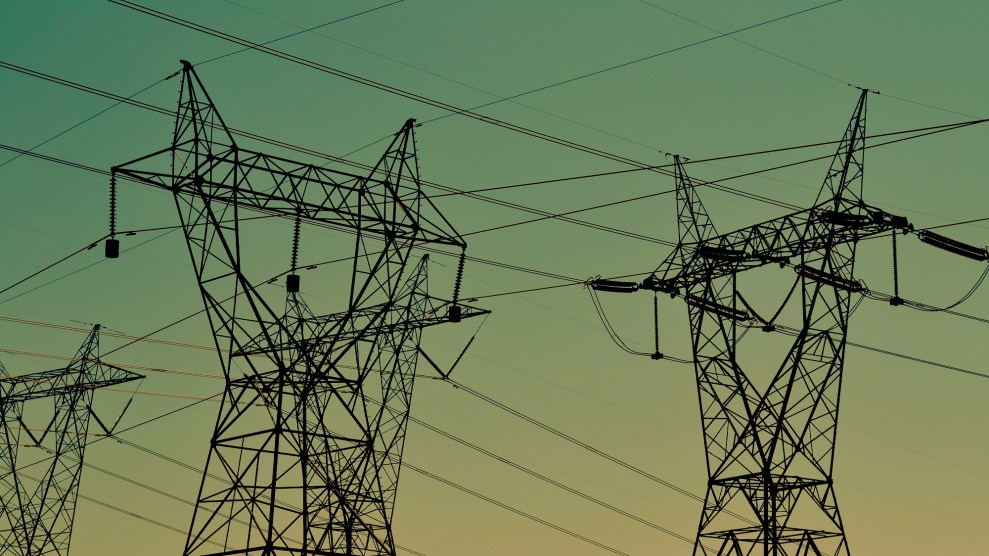MICHAEL CRICHTON’S NOVEL State of Fear, published last December, is a curious volume, combining all the clichés of pulp fiction (heaving breasts, cannibals, poisoning by octopi) with graphs and comment and lengthy footnotes directing readers to journals like Nature and The Lancet, along with the same small set of studies the climate skeptics have been promoting for years. Its premise is that environmentalists have made up a lie about the dangers of climate change in order to raise funds, and that to keep the lie alive they will do almost anything—notably, try to trigger a tsunami that will make people worry about rising sea levels. The latter is a laughable proposition—tsunamis, caused by volcanic explosions or tectonic shifts, are one of the few natural phenomena still unaffected by man, and no one has ever claimed otherwise.
Within a few weeks of the novel’s publication, of course, a real tsunami swept across South Asia. While everyone else was organizing to help the survivors, some climate contrarians organized to use the event to cement the claim from Crichton’s book that environmentalists were evil opportunists. Thirty-six hours after the wave struck, the lead editorial in the Wall Street Journal (command central for the “What, me worry?” forces) insisted that “in the world of environmental zealotry, even an event such as this is seen as an opportunity to press the agenda. Thus the source of the South Asian tsunami is being located in global warming.” The editorial quoted two activists—Stephen Tindale, executive director of Greenpeace UK, and Tony Juniper, executive director of Friends of the Earth—and noted that “people prone to hysteria often become further unhinged in the face of a great disaster,” adding that “it is perhaps appropriate that the strongest, recent refutation to such feverish assertions may be found in Michael Crichton’s new thriller.”
The only problem was that Juniper and Tindale had never said a word about the tsunami. The Journal editorial cited an article in Britain’s Independent about record property damage from natural disasters in the year 2004. The two men—interviewed, as it turned out, before the tsunami had even struck—were talking about floods and hurricanes and the $100 billion price tag they’d exacted, totals high enough that those radicals in the European insurance industry had become outspoken proponents of curbing carbon emissions. But as usual in these discussions, the actual facts made no difference—within hours the story that environmentalists were “using” the tsunami had been pumped into the media bloodstream by all the usual suspects. Patrick Michaels of the Cato Institute issued a press release attacking “anyone who has the moral audacity” to blame deaths from the tsunami on global warming, and added that “Michael Crichton should sue environmentalists who blame the massive death toll” on global warming for plagiarism. Citing the same sources as the Journal, Dennis Avery, a senior fellow at the Hudson Institute perhaps best known for his claims that organic food is dangerous to eat, wrote in a newspaper column that “a colleague warned me that environmental activists would move quickly to blame the Asian tsunami on global warming. I didn’t have long to wait.” Steven Milloy, who’s thepublisher of JunkScience.com as well as a FoxNews.com columnist, used the same Tindale and Juniper quotes to back his insistence that “environmental activists are shamelessly trying to exploit” the tsunami “in hopes of advancing their global warming and anti-development agendas.” He added that catastrophes like the tidal wave “pale in comparison to the not-so-natural disaster known as modern environmentalism.”
Think it doesn’t matter? That it’s just some columnists and web jockeys who can’t really do much damage in the face of firmly established scientific consensus? A few days later, Senator James Inhofe of Oklahoma, chair of the Committee on Environment and Public Works, and hence the man past whom any climate legislation will have to pass, took to the floor on the opening day of Congress’ new session to give a lengthy speech in which he accused the greens of linking the tsunami to climate change, adding, “There is something inhumane about that, that they would capitalize on the tragedy of a hundred thousand people to push a hoax like global warming.”
Inhofe, too, recommended Michael Crichton’s book.















